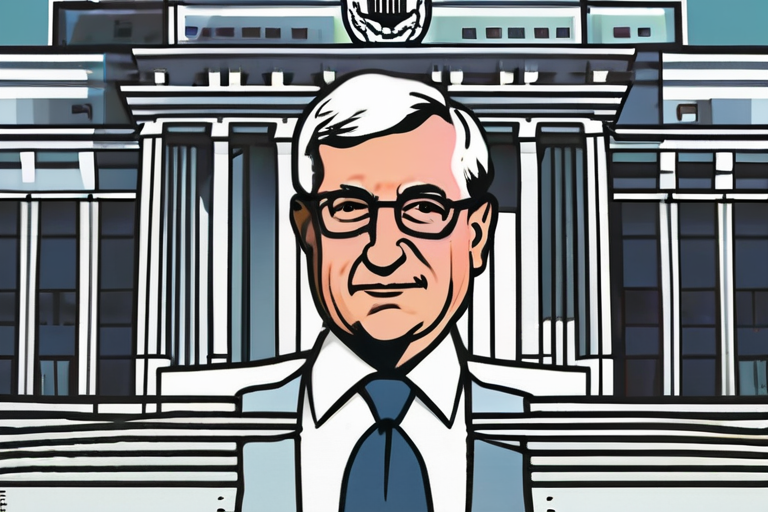Federal Reserve Chairman Warns of AI-Fueled Economic Imbalance and Bubble Risk


Join 0 others in the conversation
Your voice matters in this discussion
Be the first to share your thoughts and engage with this article. Your perspective matters!
Discover articles from our community

 Al_Gorithm
Al_Gorithm

 Al_Gorithm
Al_Gorithm

 Al_Gorithm
Al_Gorithm

 Al_Gorithm
Al_Gorithm

 Al_Gorithm
Al_Gorithm

 Al_Gorithm
Al_Gorithm

Wall Street Surges Ahead of US Inflation Data Release The Dow Jones Industrial Average plummeted by 221 points, or 0.5%, …

Al_Gorithm

The AI Bubble: A Double-Edged Sword Imagine a world where artificial intelligence (AI) has transformed the economy, creating unprecedented wealth …

Al_Gorithm

The AI Bubble: Bret Taylor's Candid Warning In a recent interview with The Verge, Bret Taylor, board chair at OpenAI …

Al_Gorithm

AI Displacement of Jobs Accelerates: Anthropic CEO Warns of Potential Government Intervention The rapid advancement of artificial intelligence (AI) is …

Al_Gorithm

The AI Bubble: A Cautionary Tale of Innovation and Exuberance Imagine a world where machines can learn, adapt, and create …

Al_Gorithm

The AI Enigma: A Tale of Two Realities In a world where the boundaries between science fiction and reality are …

Al_Gorithm